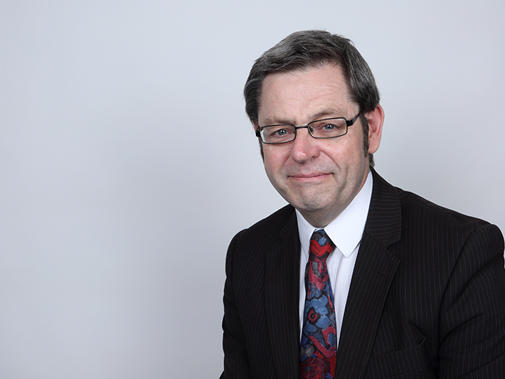I was a GP principal in a practice in England and married with a young son when we decided to return to Northern Ireland in 1997.
I initially worked across Northern Ireland as a locum primarily in general practice, but also as a locum registrar, senior house officer and staff grade in hospitals across Northern Ireland. It was during this time that I first became aware of the grade.
A post as a staff grade became available and I applied, primarily to give some stability to my family in a nine-to-five, Monday to Friday post with paid holidays and an NHS pension.
As my career developed, I became more and more aware of the unsatisfactory aspects of the staff, associate specialist and specialty doctor grade and the difficulties others were experiencing. This fired my ambition that this situation should change and my desire to get something done.
Recognise and reward
I was one of the founding members of BMA’s Northern Ireland Staff Grade and Associate Specialist Committee, as it was then in 2002, later to become the Northern Ireland Staff, Associate Specialist and Specialty Doctors committee.
Before that time, I had been active organising a series of annual educational meetings for SAS doctors in Northern Ireland, so one of the early ‘rallying cries’ for SAS doctors struck home – 'Recognise and Reward'.
That, it seems to me, has been a recurrent and ongoing theme for SAS doctors. The experience, skills and potential of SAS doctors deserve to be recognised and their contribution appropriately and adequately rewarded. That reward would not solely be in monetary terms but also in terms of opportunity to develop their skills and competence.
Recognition of SAS doctors’ potential brings with it an obligation, a duty to develop that potential. To fail to do so is to deny the health service, the patient, and the individual doctor the benefits of that development in terms of increased skills, contribution and autonomy. That obligation also includes the provision of support for SAS doctors in order that they are in a position to avail of training and educational opportunities to aid skill acquisition and career progression.
Unfortunately in Northern Ireland, despite the steadfast efforts of NISASC, the Department of Health and others are failing in that obligation. We lag behind the rest of the UK in this area. While we have SAS tutors in each health trust, we lack adequate funding support and, of course, an associate dean. NISASC continues to push for those responsible to honour their obligations.
SAS in leadership roles
I remain the only SAS doctor to have been elected as a chair of a BMA national committee.
I was chair of NIC (Northern Ireland Council) from 2009 to 2014. The members of NIC were able to see beyond the SAS label and recognise the skills the potential, and I thank them for it. So, if one SAS doctor can do it so can another.
BMA Northern Ireland will provide support, training and of course the opportunity to empower any SAS doctor to be able to speak on behalf of the Grade. Remember, you cannot be heard if you do not speak.
Reach out to SAS doctors
There is such a variety of roles with differing levels of responsibility and levels of autonomy in so many specialities covered by the term SAS doctor that it is impossible to give a single succinct piece of advice to any medical student or doctor in training who is considering the pathway. However, I will say they should speak to SAS doctors.
A fantastic source of information is NISASC. The committee members cover several differing specialties, trusts and levels within the grade and of course they are well versed in the various issues of most importance to the grade, such as career progression, development, autonomy and the new contract. So speak to them or your local negotiating committee SAS rep.
The most rewarding aspect of being an SAS doctor is the ability to be able to make a difference. As doctors we are incredibly privileged, we are trusted to be there at the most important, most vulnerable times in a person’s life.
We are there to help mother and baby through birth, providing support though periods of chronic illness and we can be there for patient and family in the last days. That’s an incredible responsibility, an amazing privilege.

